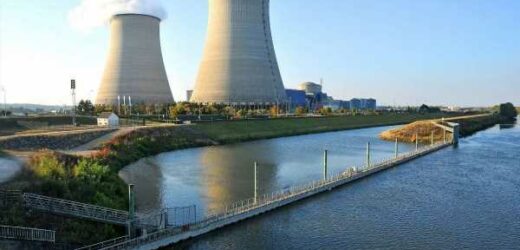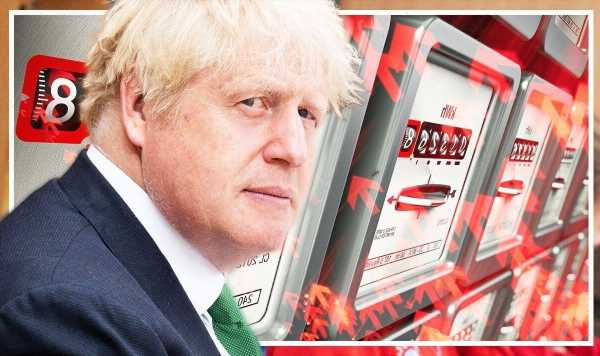Nuclear energy should be expanded in UK claims expert
We use your sign-up to provide content in ways you’ve consented to and to improve our understanding of you. This may include adverts from us and 3rd parties based on our understanding. You can unsubscribe at any time. More info
Europe faces an energy crisis, one stemming from a combination of soaring prices following supply issues that began last year and, more recently, Russia’s invasion of Ukraine. Last year, a whopping 45 percent of Europe’s gas imports and more than 25 percent of its imported crude oil came from Russia — a situation that the union is now looking to change. The bloc is looking to secure gas supplies from other sources — such as the US and Qatar — while certain nations like Germany are seeing the crisis as an opportunity to speed up the transition to renewable energy.
Energy investor Timur Tillyaev told Euractiv: “One overlooked solution that could help Europe’s short- and medium-term energy transition is nuclear power.
“In the near term, utilising existing nuclear energy infrastructure could help make European countries more energy independent.
“While new nuclear plants take years to build, about half of EU countries already generate nuclear power.
“France has the most operable nuclear reactors, followed by Belgium and Spain.”


According to a recent report by the International Energy Agency (IEA), several of Europe’s nuclear reactors were taken offline for routine maintenance and safety checks in 2021.
Restoring these reactors to safe operation this year could — when the output of a recently completed new reactor in Finland is factored in — increase Europe’s nuclear power generation by up to 20 terawatt hours this year.
Moving, where possible, to safely defer planned reactor closures over the next two years could also help mitigate against an increase in Europe’s gas demand by nearly one billion cubic metres per month.
Mr Tillyaev added: “Nuclear energy is also much better for the environment.
“It is a zero-emission clean energy source and the second-largest source of low-carbon electricity globally.
“It also has a low land footprint, producing more electricity on less land than any other clean energy source.”


According to Mr Tillyaev, safety fears have long hindered the broader uptake of nuclear power — concerns only exacerbated by the Chernobyl and Fukushima disasters of 1986 and 2011, respectively.
However, he added, “despite high-profile disasters, nuclear is one of the safest energy sources.”
In fact, he continued, an analysis from Oxford University has revealed that nuclear power generation results in 99 percent fewer deaths than coal, oil, and gas — and is actually more on a par with the fatalities caused by wind power.
The death toll from nuclear disasters, Mr Tillyaev added, still remains far lower than those who suffer each year from air pollution caused by the burning of fossil fuels.
DON’T MISS:
Antiquity’s most powerful armour-piercing bow reconstructed [ANALYSIS]
Ukraine masterplan to ‘immediately’ cut Putin’s support in Russia [INSIGHT]
Scientists baffled as images reveal mysterious ‘continent-sized’ blobs [REPORT]

An additional roadblock to fully taking advantage of nuclear power, Mr Tillyaev says, comes from the fact that it has been difficult to attract financing for such large-scale projects.
However, he added, “financing nuclear projects could soon become much easier in Europe since the European Commission has opted to include nuclear as a transition activity in its sustainable taxonomy, which member countries will vote on later this year.
“If it passes, nuclear would be officially considered a ‘green’ investment. This could pave the way for increased funding for research into nuclear technology and address some of the challenges associated with nuclear energy.”
The EU might also benefit, the businessman said, from decreasing some of the red tape around the nuclear plant licensing process.
Greater investment might also help speed up the development of so-called small modular reactors, which would be cheaper and easier to build than their larger counterparts, while also having innovative new features that make them safer to operate.
Mr Tillyaev concluded: “With recent geopolitical events highlighting the need for diversification, our planet will only benefit if Europe leads the way in moving away from fossils and embracing cleaner energy.”
Source: Read Full Article

